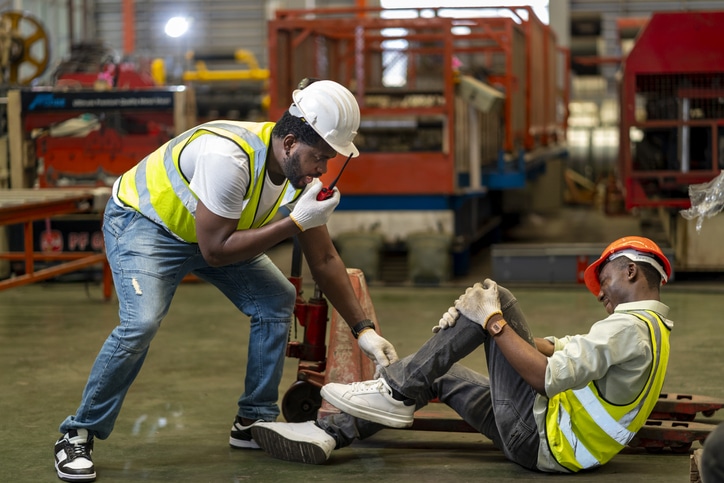American Heart Association© CPR & First-aid Classes in Santa Cruz

CPR, AED, And First-aid
Course Name: CPR and First-aid
Online Course Length: About 2 hours (At your home.)
Skills Testing: 40 minutes at one of our over 55 CPR testing sites.
Description: CPR (all ages), AED, bleeding, burns, seizures, epi-pen, etc
Price: $140 (Includes the online CPR & First-aid course, skills testing, & card.)
Certification: American Heart Association
When: CPR & First-aid classes are offered every day of the week.
Card Issuance: You will receive the certification card on day of class.
Childcare Licensing: This certification card is valid for CA childcare providers.
Add ons available: Opioid Training, or Bloodborne Pathogens
Low Price Guarantee: Lowest prices in Northern CA. Price matching policy.
View CPR & First-aid Courses in Santa Cruz & Other Cities Near You
Equipped to Save Lives: CPR & First-Aid Certification Classes in Santa Cruz
Cardiopulmonary resuscitation (CPR) and first-aid certification classes in Santa Cruz, California, provide individuals with the knowledge and skills necessary to respond effectively to emergencies. These classes are essential for healthcare professionals, childcare providers, teachers, and individuals who want to be prepared to assist in emergencies. This article explores the importance of CPR and first-aid certification, the curriculum of these classes in Santa Cruz, and the impact they have on individuals and the community.
The Importance of CPR & First-Aid Certification
CPR and first-aid certification are critical skills that can save lives in emergencies. CPR is used to revive someone who is in cardiac arrest, while first aid is used to stabilize injuries until medical help arrives. Being certified in CPR and first aid enables individuals to respond confidently and effectively in emergency situations, potentially reducing the severity of injuries or even saving lives.
The Curriculum of CPR & First-Aid Certification Classes in Santa Cruz
CPR and first-aid certification classes in Santa Cruz cover a range of topics, including basic life support techniques, the use of automated external defibrillators (AEDs), and first-aid procedures for common injuries. Participants learn how to recognize the signs of a medical emergency, assess the situation, and administer appropriate care. Hands-on practice sessions allow participants to apply their skills in simulated scenarios, preparing them to respond effectively in real-life situations.
The Impact of CPR & First-Aid Certification on Individuals and the Community
CPR and first-aid certification can have a profound impact on individuals and the community as a whole. Individuals who are certified are better prepared to respond to emergencies, whether at home, in the workplace, or in public settings. This readiness can instill confidence and a sense of empowerment, knowing that they have the skills to help others in need.
In the community, a higher rate of CPR and first-aid certification can lead to improved outcomes in emergency situations. Prompt and effective intervention can reduce the severity of injuries, prevent complications, and improve the chances of survival for those in need. Additionally, communities with a higher rate of CPR and first-aid certification may experience a greater sense of safety and preparedness, as more individuals are equipped to respond to emergencies.
Conclusion
CPR and first-aid certification classes in Santa Cruz are essential for individuals who want to be prepared to respond to emergencies. By providing participants with the knowledge and skills necessary to administer life-saving care, these classes play a crucial role in improving outcomes in emergency situations. Through education, practice, and certification, individuals in Santa Cruz can make a difference in their communities and be ready to respond when seconds count.
FAQs
Who should attend CPR & First-Aid certification classes in Santa Cruz?
CPR & First-Aid certification classes are suitable for anyone who wants to learn life-saving skills, including parents, teachers, caregivers, healthcare professionals, and members of the general public.
How long does a CPR & First-Aid certification course typically last?
CPR & First-Aid certification courses usually span over one to two days, depending on the training provider. The course includes a combination of classroom instruction, skills practice, and hands-on demonstrations.
Is there a renewal requirement for CPR & First-Aid certification?
Yes, CPR & First-Aid certifications are typically valid for two years, after which individuals are required to undergo renewal courses to maintain their certification. Renewal courses often include updates on guidelines and practice of skills.

